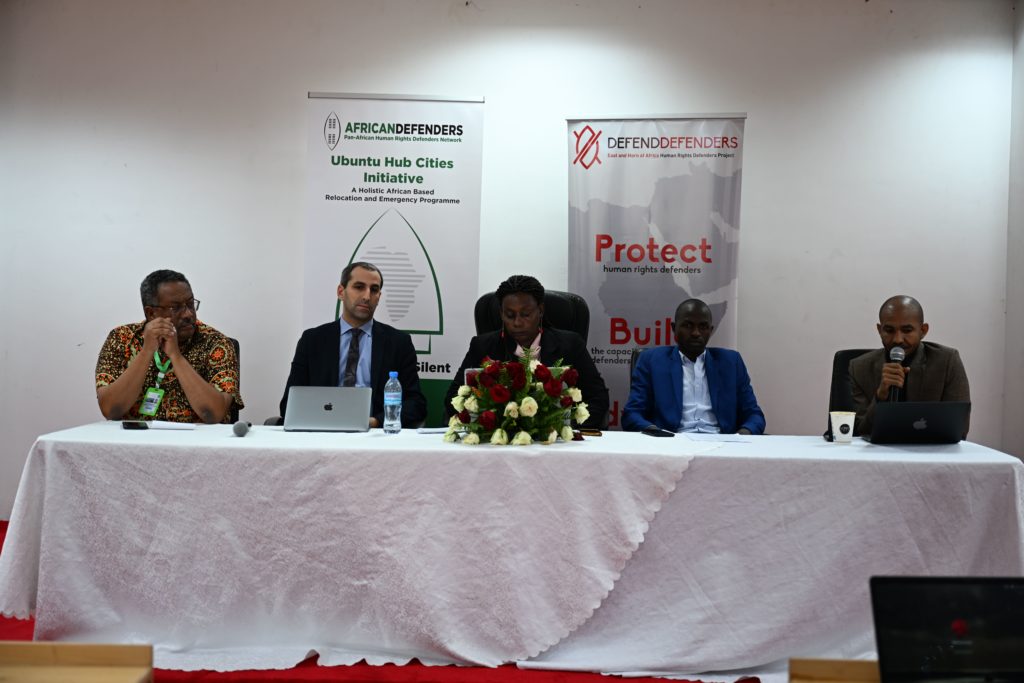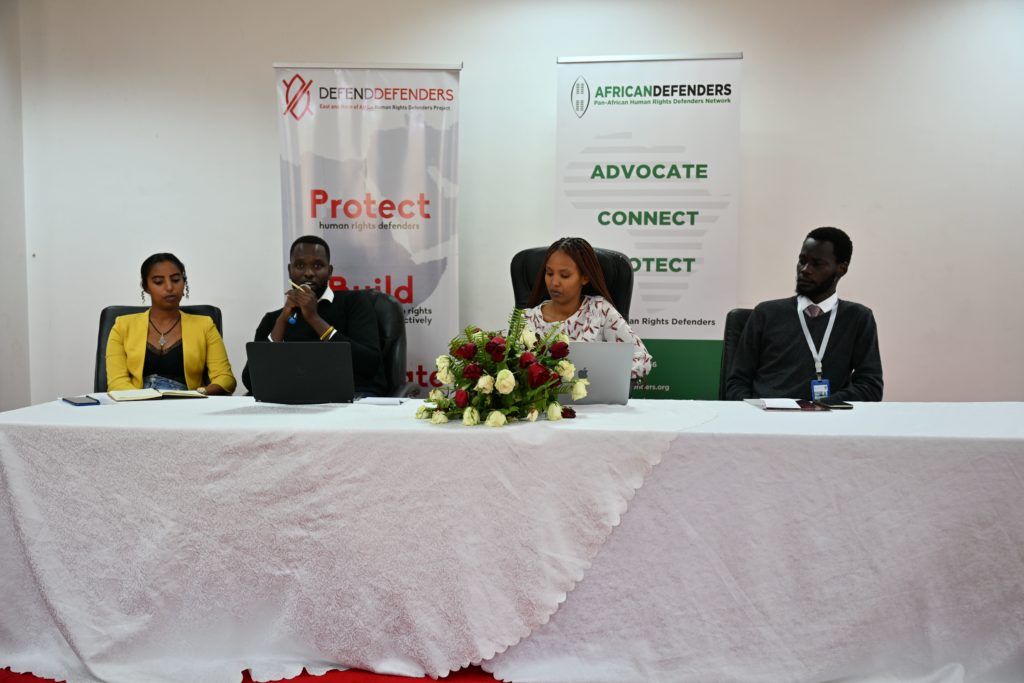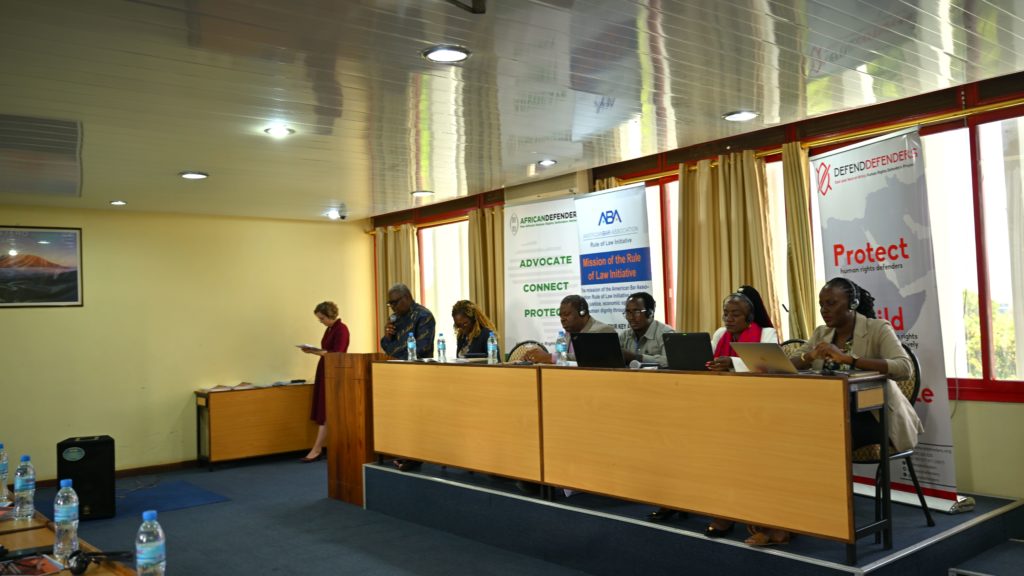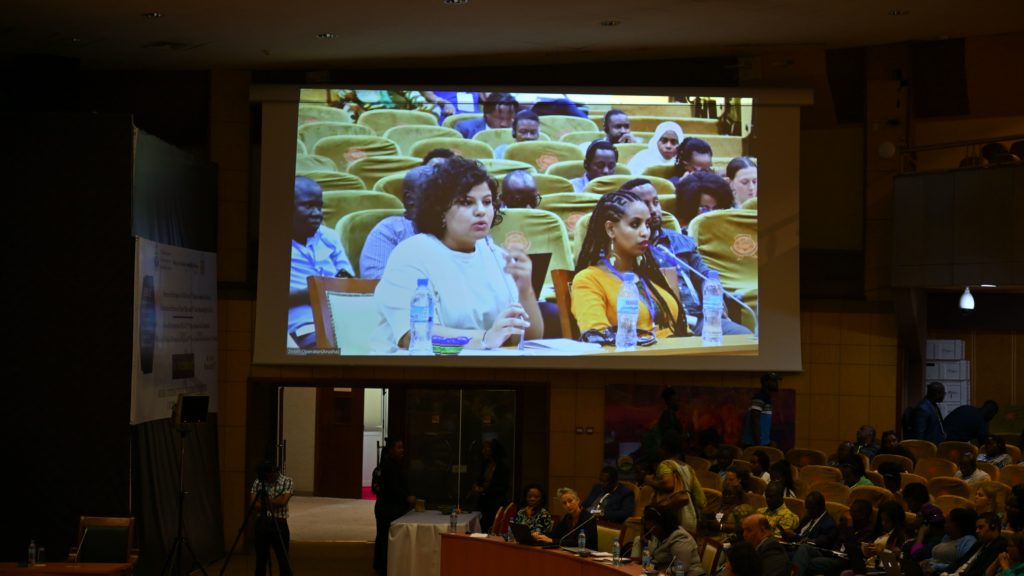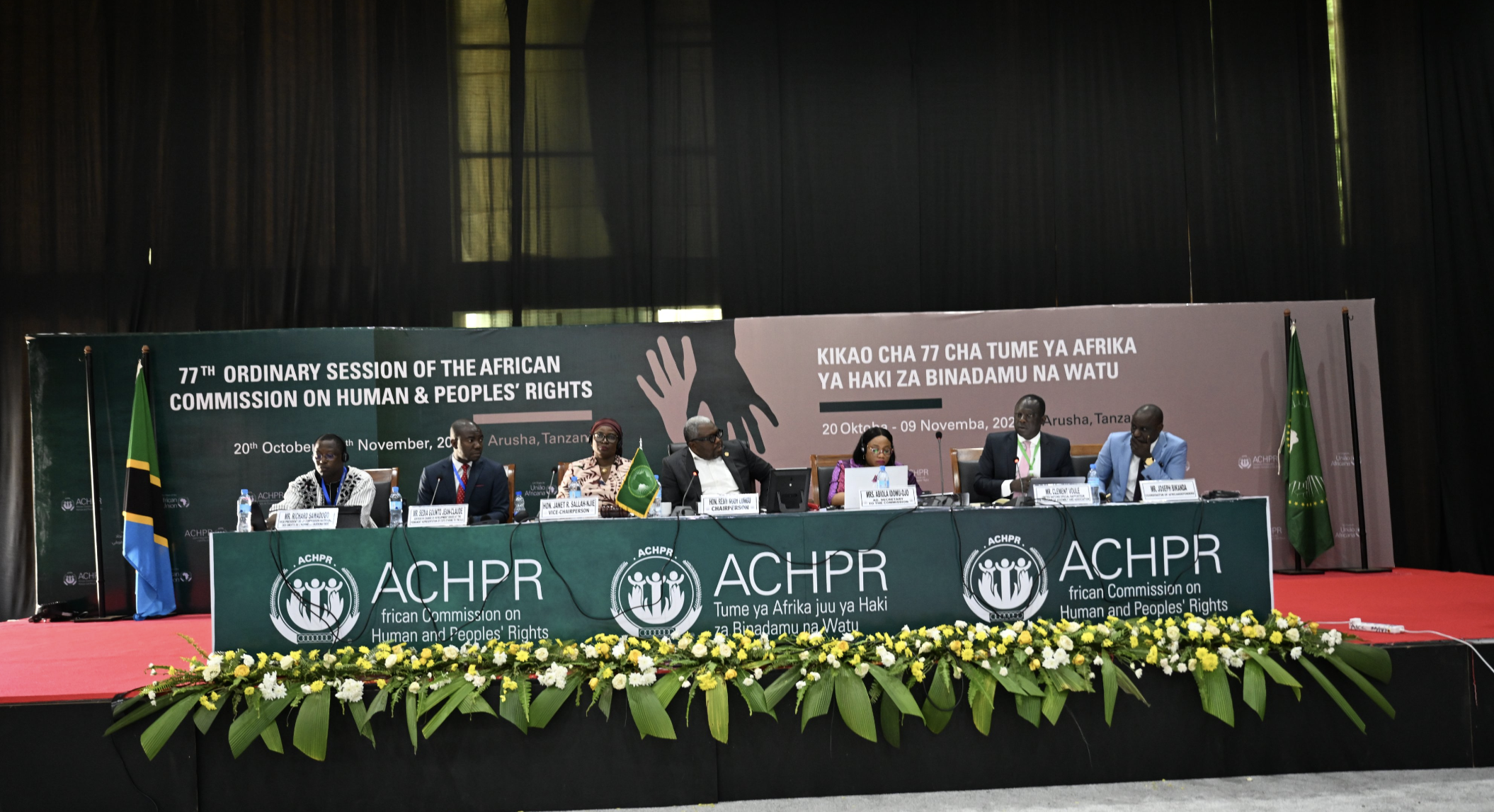The 77th Ordinary session of the African Commission on Human and People’s Rights (ACHPR77 ) was held from 20 October to 9 November 2023. Credit goes to the government and people of the United Republic of Tanzania for hosting the Commission, delivering on the commitment of H.E President Samia Suluhu Hassan in January 2023 when I joined the Chairperson Honourable Commissioner Remy Ngoy Lumbu for the initial conversation on this.
With over 1600 delegates representing states, NGOs, human rights defenders (HRDs} and the media, the session was significantly attended, and points to the staying importance of the Commission as the primary human rights body for African human rights discourse. DefendDefenders and AfricanDefenders alone supported the participation of over 40 HRDs across the continent. We were particularly keen on supporting North African HRDs, pro-democracy activists, artist-HRDs, young pro-democracy activists, environmental and climate justice activists, women HRDs, plus other marginalised and minority groups to participate in the session, linking them to the special procedures, and creating environment for their voices to be heard through side events and oral submissions.
DefendDefenders and AfricanDefenders organised many side events during the NGO Forum and on the margins of the session covering a range of human rights issues relevant to Africa. Under the spotlight were Sudan, Egypt, Youth HRDs, Freedom of Peaceful Assembly and Access to Information and on the rights violations by business entities on the continent.
ACHPR77 also provided an opportunity for DefendDefenders and other NGOs to shed light on less known situations, such as in Eswatini, where we called for #JusticeForThulani , bringing the campaign to bring to justice the killers of celebrated Eswatini HRD Thulani Maseko, killed in cold blood in January this year, to the Commission. These events are catalysts for action and help reenergize advocacy efforts. At future sessions, NGOs and civil society actors need to do even better at coordinating their strategies and advocacy initiatives, to ensure maximum impact.
The ACHPR77 also coincided with several anniversaries for international human rights instruments – the 75th commemoration of the Universal Declaration of Human Rights (UDHR), 25 years of the United Nations Declaration on Human Rights Defenders and 20 years of the Protocol to the African Charter on Human and Peoples’ Rights on the Rights of Women in Africa. also known as the Maputo Protocol. While, at 44 ratifications out of 55 countries, the Protocol is one of the most ratified of any instrument in Africa, implementation of its provisions remains slow, and various discriminations continue to stand in the way of women’s full enjoyment of their rights. The commission can therefore do more to demand more domestication and implementation of the Protocol’s provisions.
We made a deliberate attempt to juxtapose, commitments made by African States to these various instruments to the political will in protecting and advancing these rights. In our statement to the commission, we concluded that despite numerous gains, many African states have departed from their universal values and have done less in protecting their citizens. The continent must do more to mainstream and prioritise human rights in its development ambitions as enshrined in the African Charter on Human and People’s Rights as well as commitment made in the Africa We Want through Agenda 2063. The re-dedication of Africa towards the attainment of the Pan African Vision of an integrated, prosperous and peaceful Africa, driven by its own citizens, representing a dynamic force in the international arena.
We can’t attain this vision without the contribution of the African citizens and HRDs. As the the commission ensued, it was nearly unanimously observed that HRDs on the continent still lack sufficient legal, institutional and political protection on the continent. So far, only five out of the continent’s 55 countries have an HRD protection law. I
It is notable that the continent is currently braving a challenging period -from social upheavals generated by a rise in prices of basic commodities, to election and governance disputes that have resulted in coup d’états that are a throw to immediate post-independence period. In this regard, we welcomed the country resolution on the Human Rights Situation and Humanitarian Crisis caused by the ongoing Armed Conflict in the Republic of Sudan. The situation in Sudan remains dire and seems to get worse by the day, with estimates putting the number of fatalities at a staggering 10,400 since the conflict began in April 2023. Despite not spelling out a clear course of action, the ACHPR77 resolution, coupled with the landmark one passed at the 54th session of the UN Human Rights Council a month ago will ensure that the Sudan conflict is not forgotten, offering a much-needed ray of hope for the conflict’s victims.
Such collaboration on human rights intervention is what the Addis Ababa roadmap is about. Although the roadmap is now more well-known, much remains to be done to cross-fertilize efforts and outcomes of the UN Human Rights Council in particular and of the ACHPR. Joint events and working visits at ACHPR, like the ones by the UN Special Rapporteur on freedoms of peaceful assembly and association, and the UN Working Group on enforced disappearances at the ACHPR77 need to be made systematic. DefendDefenders and AfricanDefenders, for their part, facilitated networking and highlighted the importance of collaboration, complementarity and coordination between the HRC-established fact-finding mission (FFM) for Sudan and ACHPR efforts to address the situation in Sudan.
We also welcomed the resolution on Deployment of Mass and Un-lawful targeted Communication Surveillance and its impact on human rights in Africa. Such surveillance violates the right to privacy and the accompanying rights to freedom of speech, assembly, and expression.
The other resolution on the Commitment of the African Commission on Human and Peoples’ Rights to support States in the search for Lasting Solutions to reduce Forced Displacement and its Consequences in Africa could have been made stronger. As a side event on the plight of the Maasai people in Tanzania’s Ngorongoro conservation area showed, several of Africa’s indigenous communities remain particularly endangered by top-down development models that undermine their rights to land and other social amenities, and the Commission can do more to guarantee indigenous people’s full enjoyment of human rights as enshrined in the African charter.
DefendDefenders and AfricanDefenders remain committed to support the work of the Commission to ensure it fulfills its mandate to protect and promote human rights in Africa.
